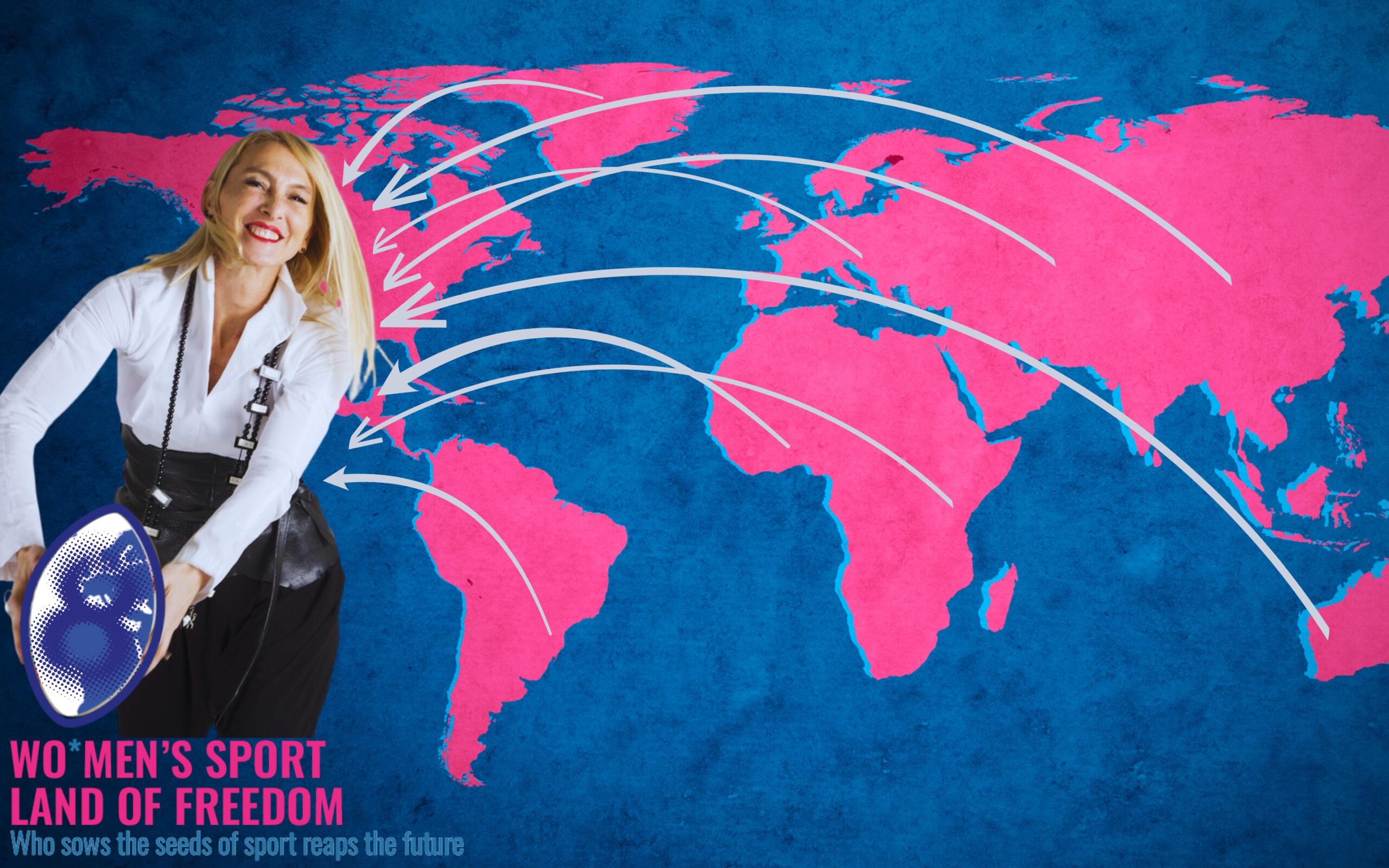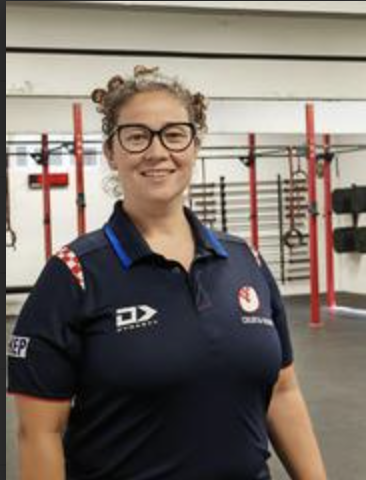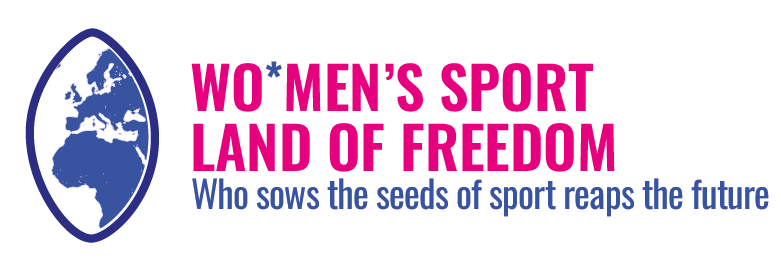
CROATIA: COMMUNITY RUGBY KNOWS NO BORDERS – NEITHER BETWEEN NATIONS, NOR BETWEEN GENDERS, NOR BETWEEN SKIN COLORS
“Community rugby knows no borders—neither between nations, nor between genders, nor between skin colors.”

Thanks to:
Petra Druskovic
National team head coach, youth development officer, training and education manager
- The history of the women’s movement in Croatia
- Testimonials
- Reading time: 7 minutes
CROATIA - Find out more
Croatia is a parliamentary republic in Southeastern Europe, on the Adriatic Sea, with about 3.87 million inhabitants in 2024 (-0.5% annually), and a female share of around 51.6%. The fertility rate is low, at about 1.46 children per woman. In Parliament (Sabor, 151 seats), women hold 33.1% of the seats; in the labor market, female participation is about 48%, increasing but still below the global average. The legislative framework in support of gender equality is strong (88.9% of required measures in force), though significant challenges remain. (Sources: DZS; UNECE; UN Women; IPU; World Bank; EU/Reuters))
HISTORY OF THE COUNTRY
1. When did the women’s rugby movement start in your country and what is the history of women’s rugby in your country? How many clubs are there, and how is women’s rugby structured in your country?
Women’s rugby in Croatia began to develop in the early 2000s, although there were some isolated attempts even before that. The first significant steps were taken around 2004-2005, when the first women’s team was formed within an existing men’s club. At that time, the sport was neither recognized nor promoted among women, so its development was slow and relied heavily on individual enthusiasm. One of the key figures in this early phase was Professor Zdenko Jajčević, whose efforts played a crucial role in initiating the women’s rugby movement. The first organized matches were played on a friendly basis, and it was only later that regional competitions began to emerge. However, the lack of infrastructure and systematic support hindered progress, leading to long-standing challenges in maintaining player numbers and ensuring competition continuity.
The history of women’s rugby in Croatia has been marked by many ups and downs, but what makes it unique is the persistence and passion of the people dedicated to developing the sport. After the first women’s team was established in the mid-2000s (First Viktorija then Mladost), a second club (Nada) decided to create a women’s team in 2009, marking an important milestone in expanding the sport. While the number of players remained lower compared to men’s rugby, the women’s game began to gain momentum. Over the years, clubs have worked hard to attract new players, but due to a lack of funding, promotion, and a clear competition structure, growth was slow and often depended on the voluntary work of coaches and players. At the international level, Croatia has been competing in Rugby Europe tournaments in rugby sevens for some time. However, women’s rugby 15s did not last long after its initial start in the early 2000s. It was only in 2023 that Croatia played its first official rugby 15s match in over a decade. This historic game was a huge step forward for the entire community, proving that women’s rugby, despite all challenges, has a promising future in Croatia.
Currently, there are two active senior women’s teams in Croatia (RK Nada Split and ŽRK Zagreb) and four clubs with some younger female players. Unfortunately, the situation is unstable as clubs often struggle to maintain enough players to sustain regular competition. Women’s rugby is primarily organized through rugby sevens competitions, while rugby 15s is still in a rebuilding phase.
At the national level: The women’s rugby sevens national team competes in Rugby Europe Conference tournaments. The women’s rugby 15s national team is still developing and does not yet have an established competition system but has already participated in Rugby Europe Conference-level matches. Club competitions are limited and mostly take place in a tournament format, which makes it difficult for players to gain consistent playing experience. However, in recent years, more effort has been made to promote the sport in schools and local communities to increase the number of female players.
2. Do you think playing rugby has a social impact for a woman in your country?
Absolutely! Rugby in Croatia is not just a sport; it is a tool for women’s empowerment, character building, and creating new opportunities. In a society where some sports are still perceived as “masculine,” women who play rugby challenge these stereotypes and prove that they can be just as strong, determined, and courageous as men. In addition, rugby provides opportunities for travel, meeting new people, and expanding personal boundaries, which gives many girls a sense of freedom and independence. Importantly, women who play rugby often become role models for younger generations, encouraging them to participate in sports despite any obstacles they may face.
3. In your opinion, what can rugby give to women in your country?
Rugby can offer women in Croatia strength, community, and a sense of belonging. It is a sport that develops both physical and mental resilience, but also creates strong, lifelong bonds between players. Confidence – Players become aware of their strength and abilities. Community support – A rugby team is more than just a group of players; it is a family that supports each other in all aspects of life. Opportunities for growth – Through rugby, women can travel, pursue education, and even build careers as coaches or referees. Breaking stereotypes – Every woman who plays rugby helps normalize female participation in sports that are traditionally seen as “male-dominated.” The development of women’s teams has also contributed to the emergence of the first female referees, coaches and club presidents in Croatia. We believe that they will play a key role in the continued growth and development of this sport. If continued investment and promotion are made in women’s rugby, it has the potential to become one of the most impactful sports for young women in Croatia—not just on the field, but in life as well.
JOURNEYS THROUGH RUGBY
Excerpt from a video interview:
1. What has rugby taught you that has impacted your daily life? Can you give me an example of when a rugby mindset was useful?
All my friends sometimes laugh and say: “Oh, if you want Petra to do something, just tell her she can’t do it.” And that’s how it was with training and refereeing too. When people doubted me, it pushed me to work even harder and achieve my goals.
2. Can you give me three words that connect rugby with freedom? What does living in a land of freedom mean to you?
Sport, and rugby in particular, has given me freedom. Community rugby knows no borders—neither between nations, nor between genders, nor between skin colors. Competing in different countries and contexts has given me the freedom to be who I want to be. Sport allows you to stand out and to be yourself, and that makes you feel welcomed and free.
3. What object represents you and why? What is an aphorism that guides your life?
An eight-kilo kettlebell. If you lift it with one hand, it’s heavy, but if you use both hands, it’s easier. Life is the same: if you adapt, if you look at things from different perspectives, or step off the path a little, you can achieve what you want. This kettlebell represents me because I am willing to change myself in order to change the world.
My favorite quote is from Nelson Mandela: “Do not judge me by my successes; judge me by how many times I fell and got back up again.”
